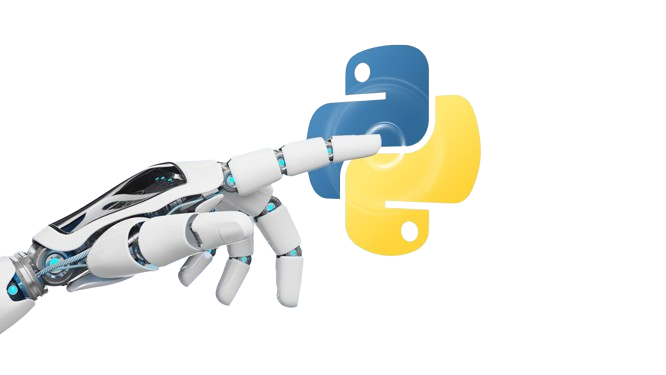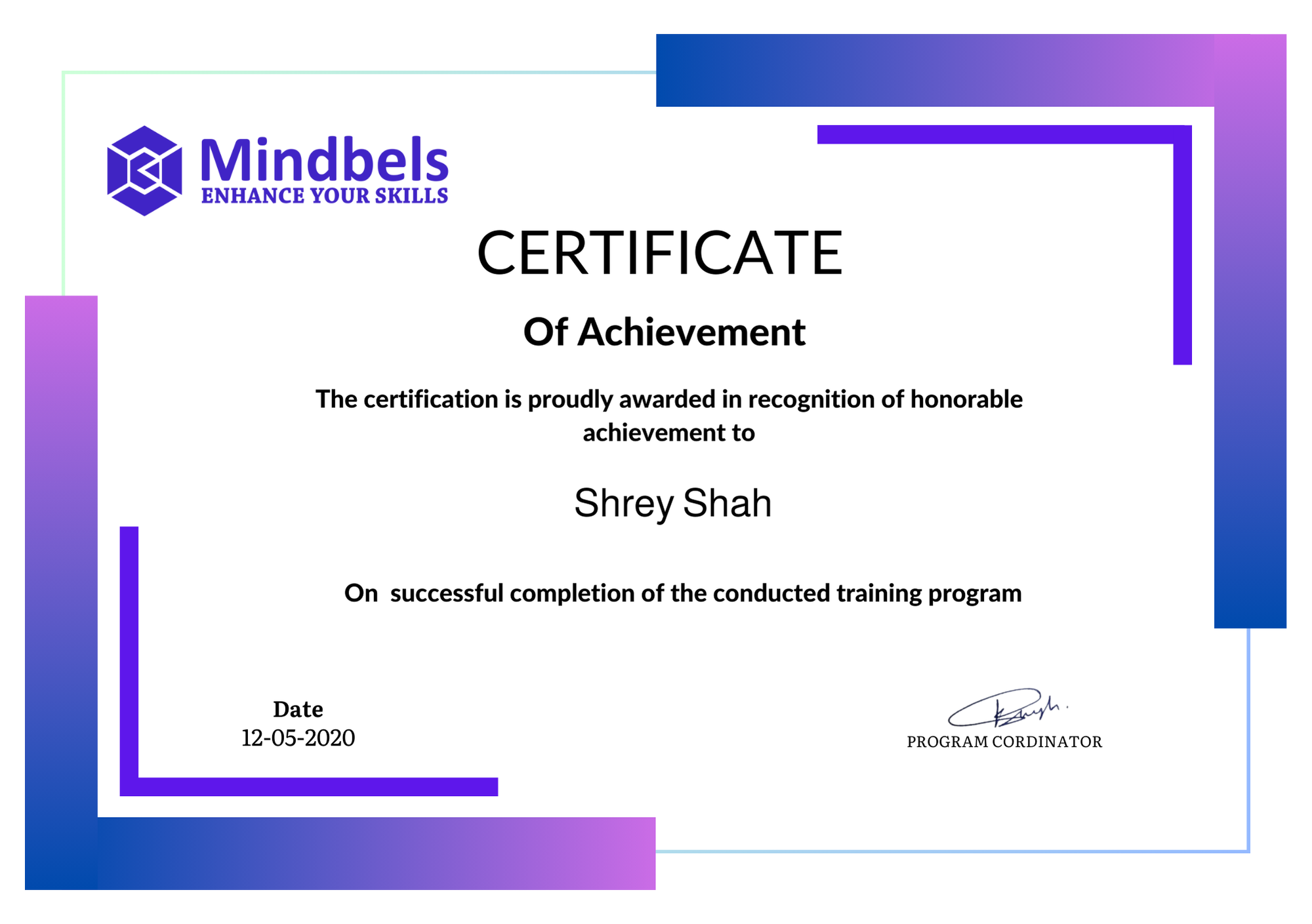Course Description
This course offers an in-depth exploration of Machine Learning (ML) using Python, a powerful and versatile programming language widely used in the field of data science and ML. Designed for both beginners and experienced professionals, this course will equip you with the knowledge and skills needed to implement machine learning algorithms, analyze data, and develop predictive models.
What you'll learn in this course?
Learn about the various libraries offered by Python to manipulate, preprocess, and visualize data.
• Learn the basics of Machine Learning including an introduction to Supervised and Unsupervised Learning.
• Learn to use optimization techniques to find the minimum error in your Machine Learning model.
• Learn about Linear and Logistic Regression, KNN Classification and Bayesian Classifiers.
• Learn about K-means Clustering and Hierarchical Clustering to understand Unsupervised Learning.
• Learn to use multiple learning algorithms to obtain better predictive performance.
• Understand Neural Networks and apply them to classify image and perform sentiment analysis.
Course Curriculum
• Statistical analysis concepts
• Descriptive statistics
• Introduction to probability and Bayes theorem
• Probability distributions
• Hypothesis testing & scores
• Python Overview
• Pandas for Pre-Processing and Exploratory Data Analysis
• Numpy for Statistical Analysis
• Matplotlib & Seaborn for Data Visualization
• Scikit Learn
• Machine Learning Modelling Flow
• How to treat Data in ML
• Types of Machine Learning
• Performance Measures
• Bias-Variance Trade-Off
• Overfitting & Underfitting
• Maxima and Minima
• Cost Function
• Learning Rate
• Optimization Techniques
• Linear Regression
• Case Study
• Logistic Regression
• Case Study
• K-NN Classification
• Case Study
• Naive Bayesian classifiers
• Case Study
• SVM – Support Vector Machines
• Case Study
• Clustering approaches
• K Means clustering
• Hierarchical clustering
• Case Study
• Decision Trees
• Case Study
• Introduction to Ensemble Learning
• Different Ensemble Learning Techniques
• Bagging
• Boosting
• Random Forests
• Random Forests
• PCA (Principal Component Analysis) and Its Applications
• Introduction to Recommendation Systems
• Types of Recommendation Techniques
• Collaborative Filtering
• Content based Filtering
• Hybrid RS
• Performance measurement
LEARN AT YOUR OWN PACE
Training Options
Discover our range of training programs and choose the ones that suit you best. Enroll today and begin your learning journey with us!



